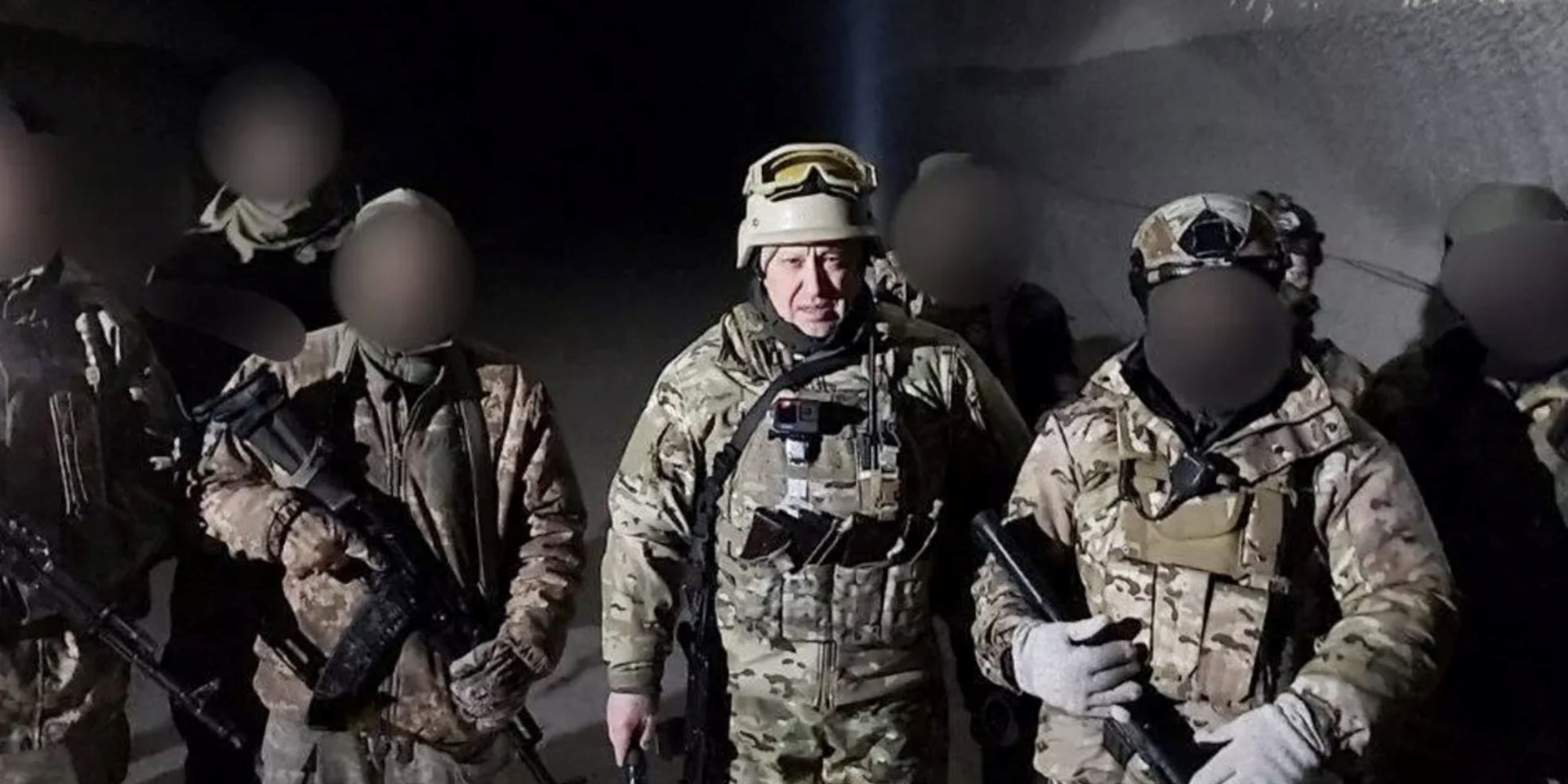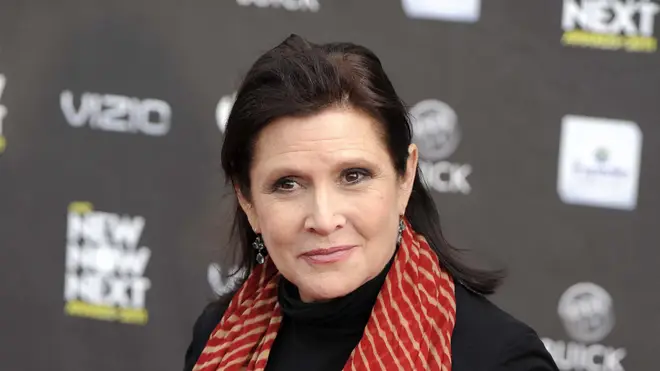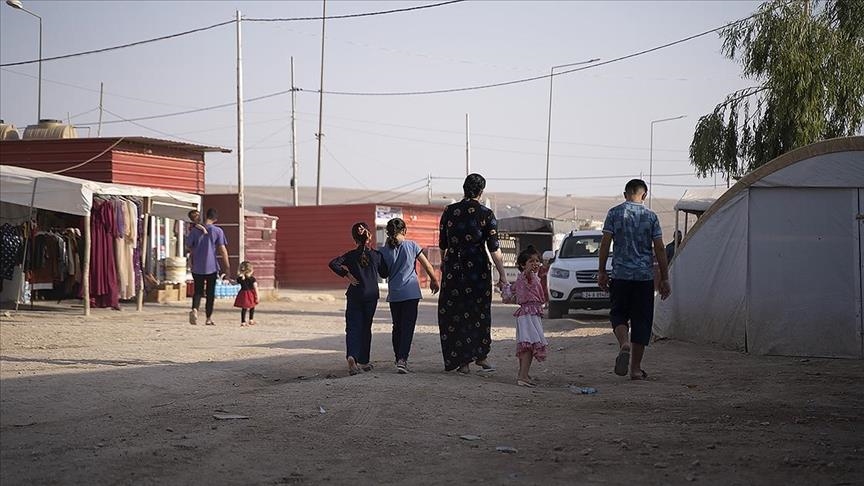ANALYSIS | Sudan: Questions about Wagner Group as another African country falls prey to mercenaries
 Wagner Group chief Yevgeny Prigozhin in what Russian state media described as the salt mines of Soledar, eastern Ukraine, on January 10 2022. (RIA Novosti)
Wagner Group chief Yevgeny Prigozhin in what Russian state media described as the salt mines of Soledar, eastern Ukraine, on January 10 2022. (RIA Novosti)RIA Novosti
The potential involvement of Russia and the shadowy Wagner Group in Sudan complicates things further. While the group has denied involvement in the current conflict, these denials appear increasingly questionable, write Kristian Gustafson, Dan Lomas, Neveen S Abdalla and Steven Wagner.
After more than a week of intense fighting between Sudanese government troops and paramilitary forces in Khartoum, many Western countries – including the US and UK – are evacuating their nationals from the strife-torn city.
While the conflict has been billed as a clash between rival warlords, there are questions about the role played by the private Russian mercenary company, the Wagner Group. This group, allegedly associated with Russian president Vladimir Putin’s ally Yevgeny Prigozhin – although he has denied any involvement – is heavily engaged in several African countries, exacerbating regional instability.
Aid organisations have warned of a humanitarian crisis as, in recent days, tens of thousands of people have fled Sudan to neighbouring countries that already face their own internal issues.
The potential involvement of Russia and the shadowy Wagner Group in the region complicates things further. While the group has denied involvement in the current conflict in Sudan, these denials appear increasingly questionable.
There is growing evidence of Wagner’s role in arming the paramilitary Rapid Support Forces which are engaged in a violent power struggle against the Sudanese military. The US secretary of state, Antony Blinken, this week confirmed Washington’s belief that the group of mercenaries is involved in the conflict, stating:
We do have deep concern about the engagement of the Prigozhin group (the Wagner Group) in Sudan … Its engagement simply brings more death and destruction with it.
Wagner Group in Africa
Students taking the Master’s degree in intelligence and security studies at Brunel University London were tasked with assessing the capabilities and intentions of the Wagner Group (and Russia) in Africa. They collected publicly available material (sometimes referred to as “open source intelligence”) to assess the group’s influence. This information was then subjected to structured analytic techniques used by the UK intelligence community and elsewhere, as part of a Brunel Analytical Simulation Exercise to prepare the students for roles as professional intelligence analysts.
They found numerous examples of how the Wagner Group has expanded its operations in recent years – often at the request of national governments. In January, the UK Ministry of Defence estimated there were as many as 5,000 Wagner operatives across Africa in 2022.
Despite the war in Ukraine, leaked US intelligence documents suggest the group is developing a “confederation” of anti-western states. These include Chad, to the west of Sudan, where US intelligence reports allege that Wagner mercenaries are involved in destabilising the government. Chad is a key ally of the US in this region of Africa.
READ | More than 100 000 refugees flee Sudan amid intense fighting
Sitting directly beneath Chad is the Central African Republic (CAR), where the Russian ambassador Alexander Bikantov said in February there are 1,890 “instructors” involved in fighting between the government and rebel troops.
The Wagner Group has reportedly had a presence in CAR for several years, initially providing training and back-up services and latterly involved in combat operations against rebel insurgencies. According to the International Crisis Group, although the CAR’s president, Faustin-Archange Touadéra, has denied signing a contract with the Wagner Group, “its presence … is barely a secret”.
The Crisis Group’s report continued:
Rather than eradicating armed groups, the contractors are perpetrating abuses that increasingly drive violence in the provinces and fuel guerrilla warfare against government troops by rebels scattered in the bush.
Wagner mercenaries are also reportedly active in Sudan’s north-western neighbour, Libya, which has been in a state of armed chaos since the ousting of Muammar Gaddafi in 2012. In 2020, the BBC reported a leaked UN document saying there were 1,200 Wagner personnel in Libya. They have reportedly been supporting rebel warlord Khalifa Hafter’s forces against the Tripoli-based government, alongside other mercenaries from Belarus, Moldova, Serbia and Ukraine.
Shifting influence
In Mali, the Wagner Group has supported the military junta to enforce its rule, with a large base at Bamako International Airport. The group’s increasing influence in that part of Africa has coincided with a dilution of western involvement. In February 2022, the French government announced the withdrawal of its forces after nine years of trying, and failing, to counter Islamist insurgency.
In March 2022, Malian state forces – reportedly supported by “suspected Russian mercenaries” (although no group was identified) – massacred civilians and militant fighters. Calls by the UN Security Council for an independent investigation into the massacre were blocked by Russia, and the UN was not granted access to the site.
There is also growing evidence of the Wagner Group’s presence in Burkina Faso and the Democratic Republic of Congo (DRC). Burkina Faso has experienced two coups in the last 12 months, and is facing escalating threats from Islamic State-linked groups.
READ | Breakthrough: Sudan military leaders agree to nominate representatives for peace talks
Russia is courting Burkina Faso through military and political endeavours, and has stated its intent to aid nations in the Sahelian region in combating the jihadist threat in their countries. DRC, Mali, CAR and Sudan have all abstained or voted against requiring Russia to remove troops from Ukraine.
It’s unclear to what extent the Wagner Group does the Kremlin’s bidding as Prigozhin himself has repeatedly denied any involvement. But as a private enterprise, the profits for them in Africa are spectacular. And, as with so many of the biggest Russian businesses, Wagner’s successes are owed to the Russian state and the kleptocratic elites who are likely to share in its revenue.
The Kremlin provides direct support where profit interests align with Russia’s political interests. At the moment, the troubled countries in which the Wagner Group is alleged to be involved in conflict and destabilisation provide resources and political support at the UN, which are important for Russia’s war on Ukraine. Further regional instability is to be expected.
Brunel MA students Laura Collins, Freya De Santis and Bobby Payne assisted with the research for this article![]()
Kristian Gustafson, , Brunel University London; Dan Lomas, Lecturer in Intelligence and Security Studies, Brunel University London; Neveen S Abdalla, Lecturer, International Relations, Defence, and Security, Brunel University London, and Steven Wagner, Senior Lecturer in International Security, Brunel University London
This article is republished from The Conversation under a Creative Commons license. Read the original article.































